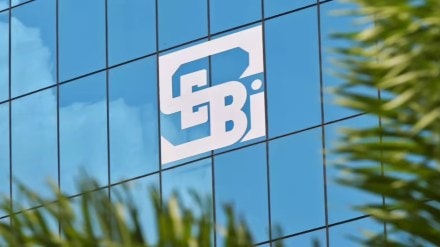The Securities and Exchange Board of India (Sebi) chairman Tuhin Kanta Pandey on Friday said the regulator is considering allowing Real Estate Investment Trusts (REITs) and Infrastructure Investment Trusts (InvITs) to invest in liquid mutual funds as well as facilitate inclusion of REITs in equity indices.
Boosting REITs and InvITs through Index Inclusion Placement
Addressing the National Conclave on REITs & InvITs 2025, Pandey said: “We are examining a proposal to expand the pool of liquid mutual fund schemes, in which REITs and InvITs can invest, while safeguarding investor interests.”
Allowing such investments will enable REITs and InvITs to park surplus cash for short periods while earning returns. Sebi will also work to include REITs in equity indices, Pandey added.
The regulator recently reclassified REITs as ‘equity,’ while InvITs remain in the hybrid category. Once REITs are included in equity indices, index funds, ETFs, and passive funds will be required to buy the stock, triggering automatic and large-scale purchases that could substantially broaden their investor base.
“We are also exploring whether private InvITs, too, may invest in greenfield projects, with adequate safeguards,” he said. As of October 2025, the combined assets under management of REITs, InvITs and SM REITs stood at around ₹9.25 trillion, though the sector still has significant room to grow in depth, scale, and diversification, Pandey noted.
Pandey said Sebi’s proposed reforms in mutual fund and stockbroking regulations could be taken up at the upcoming board meeting on December 17, depending on the completion of related work.
Sweeping Reforms Proposed for Brokers
In its discussion paper on mutual funds, Sebi had sought feedback on delinking research fees from brokerage fees. “As there are apprehensions that many asset management companies may stop taking research services, which could hinder information flow, the Sebi may relook into the issue to find a solution,” he said.
To protect investors, Sebi’s consultation paper has also proposed reducing brokerage charges — from 12 bps to 2 bps for cash market transactions and from 5 bps to 1 bps for derivatives — to enhance clarity and transparency.
Pandey said Sebi would soon make the cash market more attractive by revising short-selling norms and the share lending and borrowing (SLBM) framework. The aim is to deepen liquidity and participation in the spot market. “These two reforms work together because short selling is only possible if investors can borrow shares, and SLBM is the system that allows this borrowing,” he said.
Sebi is also reviewing measures on derivatives and will take a calibrated approach to any policy changes, Pandey added.
The market regulator is rewriting its decades-old broker regulations — many dating back 30 years — to align with a “tech-first” market, removing redundant categories and simplifying disclosures. The revised framework is expected to cut the text length of the regulations by nearly half, he said.
